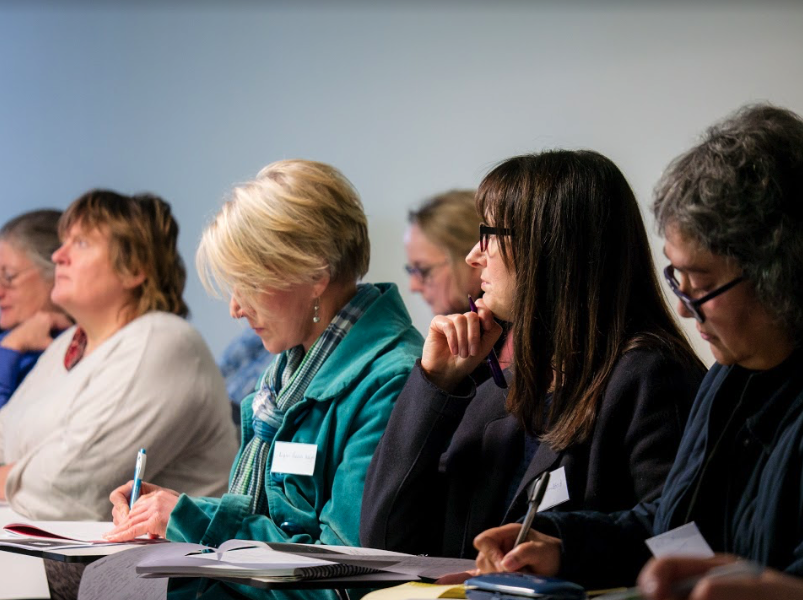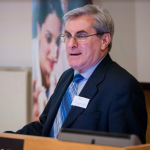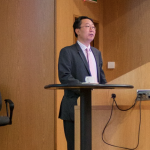One of the most important dates in the NALDIC calendar is our annual National Conference. Last year’s conference, ‘Educating multilingual learners in the 21st century: The next 25 years’ celebrated 25 years of research, practice and advocacy by NALDIC. This milestone event was attended by 158 delegates, fully representing the diversity of our membership: teachers, educational consultants, academics, students, EMAS groups and many more. The day included keynote speeches by two extremely well regarded academics in the field, ten workshops covering classroom practice, education policy, research, and community advocacy. We showcased our Pupil Voice presentations, shared news about our Ofsted training video, and brought the EAL community together for a vibrant day of learning, networking, and cross-disciplinary collaboration. After every conference we seek feedback from those who were there so that we can learn from our successes, and identify areas for improvement, so that we can keep this important NALDIC event as relevant as possible for our members. Here, we present an overview of feedback from last year’s conference and reaffirm our commitment to making NALDIC 26 do just that.

The feedback from delegates at NALDIC 25 shows that it was a resounding success. The majority of the responses mentioned that the workshops, keynotes and networking with colleagues from different educational settings were the most successful aspects. The ideas and strategies outlined in the sessions were also welcomed. Additionally, the valuable work NALDIC does for the EAL field was recognised. One delegate said, ‘Best day of the year for me – NALDIC conference.’ Another said, ‘As always I have learned a great deal from the conference.’
Colleagues who had attended for the first time commented:
‘As a first-timer, I found that the conference was really, really well organised overall and there was a super buzz from attendees. It was a great venue and I particularly liked the dining area being so large that it could link with the stalls and signing up sheets. I liked both of the keynote speakers, especially Fred [Genesee], but I wondered whether they might be too academic in nature for an audience of mostly practitioners as I am not sure I would have found them accessible when I was in the classroom. I found the afternoon a bit packed and felt that a quick tea break before the keynote would have worked well. Personally, I thought the sign up system for workshops worked fine but a couple of people moaned that they couldn’t sign up for the ‘only reason’ they had come to the conference but I don’t know what we do about that.’
Another member tweeted: ‘Wonderful NALDIC conference- so much expertise to share. Fascinating workshop on Polish pupil voice. Enjoyed meeting everyone. Thank you. Merci. Shukran!…’

And an exhibitor tweeted: ‘Thanks to all the NALDIC organising committee and volunteers for a really lovely conference. Nice to meet old friends, put faces to known names and establish new contacts. Let’s look forward to another 25 years of supporting our EAL learners.’
NALDIC values delegates’ feedback and aims to address aspects that were rated as least successful – even where this may only be one or two people – such as comments relating to the afternoon session for the second keynote this time (a decision that the planning committee considered very carefully in order to balance the programme for the whole conference). Several school delegates also commented on the academic nature of the keynote talks, which they considered were not relevant in the context of English classrooms, while other researcher/practitioner/advisory delegates thought they were just right: ‘Fred Genesee made me re-think language acquisition in the early years. He was interesting, relevant and engaging’ and ‘Li Wei’s keynote was thought provoking.’ As a matter of policy we value all feedback comments. We are pleased that our members found the 2017 conference programme professional informative and stimulating. As organizers we are also aware that one of the aims of our conference programme is to bring new and/or different perspectives to our professional thinking. Sometimes this may involve discussing ideas and concepts that are not immediately familiar in terms of day-to-day classroom and school work, but may be relevant and helpful in thinking and appraising our taken-for-granted practice with a fresh pair of eyes. In future we should try to contextualize such discussions more explicitly.
Keynote speakers Fred Genesee and Li Wei
The theme of Conference 26: ‘Evidence informed practice for EAL learners’ will seek to address some of the feedback we received for Conference 25 while moving debates forward, with workshops presented by practitioner – researchers focusing on the classroom and one of this year’s keynote speakers, Dr. Jean Conteh, who was recommended by several delegates.
Although, we know that London is a great venue for the conference (a commitment we have agreed within NALDIC is for a London conference every other year), many delegates suggested a venue in the Midlands or North would be ideal for the conference in 2018. We have therefore investigated several venues – in Birmingham, Leeds, Manchester and York – and are pleased to have discovered Cloth Hall Court which is part of Leeds Beckett University. This venue offers exactly what we need for our events and is just across the road from Leeds City station. The added bonus is that we can have the whole building to ourselves. One delegate highlighted the ‘real appetite for EAL pedagogy in Leeds where 50 people attended a recent RIG.’ Although our conference fee is cheaper than many, some delegates still feel that the fee was too high. So this year we have reduced it.
We are looking forward to another successful conference this year
Everyone on NALDIC committees is a volunteer. We aim to please our delegates and do our best to organise a valuable experience for all practitioners working with EAL pupils. We value your opinion so please let us know how we can make your 2018 conference experience even better than last year’s. Contact us on enquiries@naldic.org.uk or leave a comment below.
We look forward to welcoming you to NALDIC 26 in Leeds later this year. Click on the link to find out more.

EALJournal.org is a publication of NALDIC, the subject association for EAL. Visit www.naldic.org.uk to become a member.




